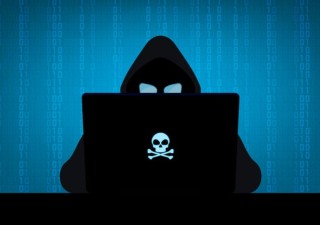Tracking Injunction Remedies in Intellectual Property Violations
04 December 2012

Much as intellectual property rights are essential to protect an individual’s creative and intellectual fruitions, they also serve the purpose of identification of source and origin of goods. Recent years have witnessed a remarkable improvement in the enforcement mechanism of intellectual property rights. In India, both civil and criminal remedies can be availed of in case of infringement. Indian courts have been applying internationally well-established principles in IP infringement cases.
Civil remedies are pursued to restrict the infringer immediately from further dealing in infringing mark or products, by means of an injunction. The injunction can be granted temporarily until the disposal of the suit and is confirmed at the conclusion if the plaintiff’s claim is established and his proprietary rights are found to have been infringed. At the same time, compensation, damages, account of profits, delivery up or discovery of infringing material or documents can be awarded on due grounds by the courts. The courts have developed suitable remedies in the form of different genres of injunction orders depending on the facts of each case, some of which are discussed below.
Anton Piller Orders
Anton Piller orders are interlocutory injunction orders issued on an ex parte application devised to provide an effective restoration in cases of piracy when it was feared that the infringers might destroy the incriminating material in their possession if given a notice of inter partes application. First passed in Anton Piller v. Manufacturing Processes, they allow an applicant to have court-appointed commissioners enter the respondent’s premises to inspect, search and seize in order to preserve evidence and prevent the destruction of incriminating evidence. The orders are issued by the courts only when the following criteria are fulfilled:
(1) There is an extremely strong prima facie case against the defendant,
(2) The damage, potential or actual, is very serious for the applicant, and
(3) Clear evidence that the respondents have in their possession incriminating documents or materials and that there is a real possibility that they may destroy such material before an inter partes application can be made.
In the recent case of Autodesk Inc v. AVT Shankerdass before the Delhi High Court, the importance of search and seizure in case of copyright piracy was emphasised and the court even laid down guidelines for appointment of local commissioners.
Mareva Injunctions
The purpose of a Mareva injunction is to protect the interests of the plaintiff during the pendency of the suit and is granted to restrain the defendant from disposing of their assets within the jurisdiction until the trial ends, so that the plaintiff’s right to obtain damages or costs is not adversely affected by the disposal. In Tata Sons Limited v. Manu Kishori & Ors, Tata Sons obtained an ex-parte injunction against the defendant’s use of the trademark “Tata” in his company name and duping gullible employment seekers by offering jobs in the company. The judge passed an order in the nature of a Mareva injunction, freezing the defendants’ assets, including bank accounts.
However, Mareva injunction does not give the plaintiff any right over defendant’s property; it merely prevents unjust enrichment of defendant at the cost of the former. It can be used to freeze assets worldwide.
John Doe Type Orders
These orders operate against infringing goods which may be seized wherever they are located and would operate against any potential defendant, who is subsequently identified as the counterfeiter/infringer. The real significance of these orders is the extent to which it impacts the persons who might be infringing or inclined to infringe, even though their identities are not yet known.
In Taj Television & Anr v. Rajan Mandal & Ors, John Doe orders were granted in India for the first time, empowering the commissioner to enter the premises of any cable operator illegally airing the football World Cup 2002. The court considered the fact that in a peculiar situation where the right to broadcast vested the plaintiff, he had a limited time span for redress, and unauthorised transmissions by other cable operators were impacting its relationship with its existing licenses. The unstructured nature of the cable industry in India made enforcement very difficult, so the court resorted to John Doe orders under the exercise of its inherent powers under Section 151 of the Code of Civil Procedure.
In another Delhi High Court case, the petition of Integrix (India) was admitted to sue an unknown person, whose only known identity was an e-mail address. The company had received defamatory e-mails which were damaging to the reputation of the company and its directors.
Intellectual property is an important business asset and its misappropriation by another leads to heavy losses terms of money and goodwill. The violation necessitates the enforcement mechanisms coming into effect, which is provided under the same statutes as vest them with these rights. The effective enforcement of intellectual property rights makes for optimum realisation of benefits of one’s ingenuity and intellect.
LEX ORBIS Intellectual Property Practice
709/710, Tolstoy House, 15-17,
Tolstoy Marg, New Delhi - 110 001, India
T: +91 11 2371 6565
F: +91 11 2371 6556
E: mail@lexorbis.com
W: www.lexorbis.com






